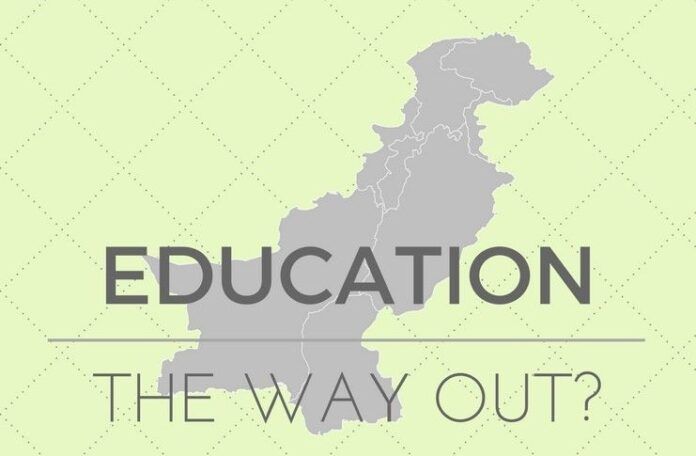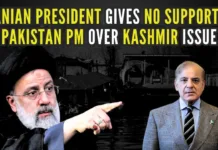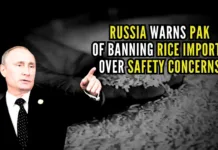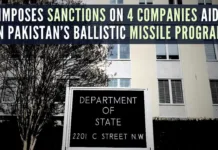
[dropcap color=”#008040″ boxed=”yes” boxed_radius=”8px” class=”” id=””]I[/dropcap]n the last two months there have been more than 10 major terror attacks in Pakistan. Where more than 200 people were killed, of which many were innocent victims. 88 people died in Sufi shrine in Sindh province in a deadly suicide bomber attack by a female terrorist targeted the much reputed Sufi shrine of Lal Shahbaz Qalandar in Sehwan on February 16 at the time of evening Damal an emotional dance was performed, responsibility of this attacks were claimed by the Jamat Ul Ahrrar a local Pakistani terror group group affiliated to Islamic State, And anti Shia and anti Sufi focus is part of shared ideology. The Pakistani Army chief Gen. Qamar Javed Bajwa issued a strong statement saying that “Each drop of the nation’s blood shall be revenged, and revenged immediately. No more restraint for any one.”
There has been a steady movement to exclude the non-Sunnis.
The Pakistani government launched a crackdown and claims to have killed more than 100 militants in different parts of the country. Afghanistan was blamed for providing shelter to some of these groups and In current development PM Nawaz Sharif government has placed Hafiz Sayed under house arrest, considering him as serious threat to Pakistan’s security.
Steady anti Shia and now the anti Sufi focus is not of the recent origin, as this kind of excommunication goes back to the mid 1950s when the Ahmadias were targeted. There has been a steady movement to exclude the non-Sunnis. There have been two broad orientations of Islam since the days of its inception. One was the orthodox Islam, it believes that Muslims should leave in accordance with the rule of sharia and the other is Sufi Islam where rituals, the idea of love and communing with the god are propagated. Through out the history of Islam these two tendencies have come together, collided and diverged. The equilibrium of shared ideology was never disrupted, but today we can see the strong ideological offence against the Sufi Islam and Shia Islam.
The orthodox tendencies of Islam can be referred to the kind of Islam that is eminating from Saudi Arabia with so called Wahabi and Salafi. These can be a simple reduction in politics of Shia and Sunni, where Saudi Arabia represents the political faction of Sunni Islam and Iran the political faction of Shia Islam. The context of Shia, Sunni politics in Pakistan goes back to the days of Zia-Ul-Haq on the issue of Zakat, where Shia-Sunni religious riots took place over the differences in Islamic jurisprudence in particular, over how Zakat donations would be distributed. Since then it has become one big mess which has not been fixed by the later governments. This is the reason why when the Middle East blows up the repercussions are being felt in Pakistan.
[dropcap color=”#008040″ boxed=”yes” boxed_radius=”8px” class=”” id=””]T[/dropcap]he first question raised after the attack was what it really meant for the entire region and particularly for India. It was not for the first time that there has been a spike in terrorism in Pakistan. But fortunately these terror attacks have not made an impact on India. In India Shias and Sunnis are living in peace and there’s no direct confrontation, while there may be a problem or two in certain pockets. Afghanistan and Pakistan continue making bitter charges against each other as the Afghans are trying to break free from the grasp of Pakistan. If this continues eventually they will end up becoming strategic rivals. As each tries to gain the upper hand, expect more turbulence in the near future.
The state must take up the policy initiatives to deradicalise the Islam.
Pakistan has a complex relationship with terrorism. Though Pakistan calls itself as a victim of terrorism it has never done anything to deradicalise the Islam in the country. The recent events shows there was a relation between the deep state and the terror groups. Pakistan has got different schools of Islam like Bareilly Madrasa, Deoband Madrasa, Madarasa of Jamat-e-Islami etc., where each school teaches its own set of arguments, some of which are directed against each other. This kind of in-doctrinal differences has been there for decades, and people coming out of this Madrasas have a very narrow vision of only the sect they came out of. If this continues, it will only get worse. In this complex situation, the deradicalisation of Islam was going to be huge task for state. But unfortunately no leader in the Pakistan is ready to speak on this issue.
Islamic State and many other radical Islamic outfits are using websites and latest tools for spreading their propaganda in a skillful manner, and the state must make an intervention to stop them from spreading propaganda. The state must take up the policy initiatives to deradicalise the Islam. Many liberals and scholars in Pakistan have suggested that it should start from the school and curriculum taught in the schools. Pakistan has got the highest school drop out rate which is about 60 percent and Pakistan was investing only 2 percent GDP on education. Pakistan should invest more in education and bring the children to the schools. Liberal scholars like Javed Ahmed Ghamidi have suggested many practical measures towards a better system of education in Pakistan.
As Neslon Mandela said, “Education is the most powerful weapon which you can use to change the world”.
- Glimpse Into The 25 Years Of India Israel Relations - July 7, 2017
- Ambedkar – A visionary & the Father of Indian Constitution - April 15, 2017
- Terror Attacks In Pakistan: What It means To The Region - March 7, 2017










